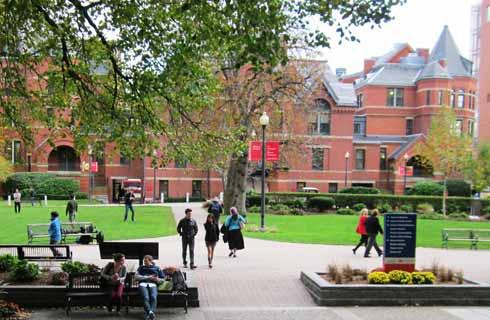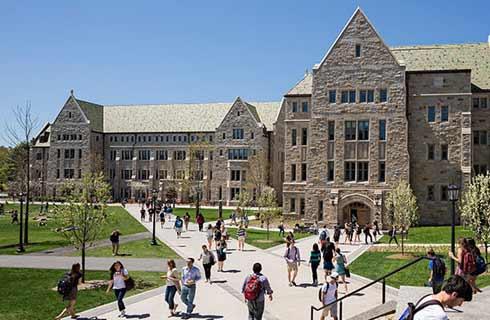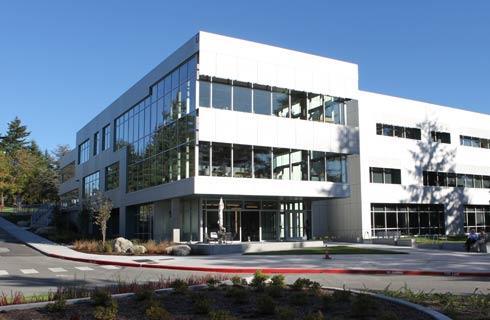Doctor of Philosophy in Chemical Engineering - Biomolecular Engineering

学历文凭
Ph.D.

专业院系
Chemical and Biomolecular Engineering

开学时间

课程时长

课程学费

国际学生入学条件
Unofficial transcripts of grades from all undergraduate and graduate schools attended
At least three letters of recommendation from teachers or advisers
TOEFL scores are required for any student requiring a visa or whose native language is not English. Test-takers should score at least 90 on the iBT (internet-based) TOEFL, at least 600 on the paper-based TOEFL or score 250 on the computer-based TOEFL. Only the best composite TOEFL score is accepted; myBest scores are not accepted. In lieu of the TOEFL the IELTS test will be accepted with a required score of 7 or greater. The ETS Reporting code for Rice University is 6609. Note: Waiver of the English language proficiency requirement is applicable to a candidate with proof of degree from a university whose official language of instruction is English (US universities and applicable international universities and/or countries). Applicants may upload unofficial scores. If an offer of admission is made and accepted the official scores will then be required.
A statement of purpose
GRE or other applicable test scores**
**For 2021, Rice is eliminating the Graduate Records Examination (GRE) standardized test requirement for its graduate programs.
IDP—雅思考试联合主办方

雅思考试总分
7.0
- 雅思总分:7
- 托福网考总分:90
- 托福笔试总分:600
- 其他语言考试:Duolingo. A minimum score of 115 is required.
CRICOS代码:
申请截止日期: 请与IDP联系 以获取详细信息。
课程简介
Biosystems engineering focuses on the integration of molecular biology, protein engineering and high throughput technologies with systems modeling methodological approaches. It aims at obtaining a complete understanding of the biological system, from the molecular up to the cell population level and developing and applying strategies to engineer (design, optimize and control) its performance in general.<br><br>ChBE researchers are collaborating with a group of faculty from the Departments of Biosciences, Bioengineering, Computational and Applied Mathematics, Statistics, and Chemistry to develop novel frameworks that combine experimental, theoretical and computational tools to study heterogeneous cell populations as complex, and highly interconnected systems with interacting components. This novel systems-based approach will change the design principles used to develop effective drugs, tissues with desirable structure, materials with novel properties, and other bio-based, environmentally friendly, and sustainable technologies.
相关申请
 预科
预科 奖学金
奖学金 实习机会
实习机会 在校学习
在校学习 跨境学习
跨境学习 校园授课-线上开始
校园授课-线上开始 在线/远程学习
在线/远程学习
开学时间&学费
学费信息仅供参考,请与IDP联系以获取详细信息
| 开学时间 | 时长 | 学费 | 地点 |
|---|
学校排名

世界排名86
数据源:
泰晤士高等教育世界大学排名
关于莱斯大学

莱斯大学是西南部最好的大学,在整个南部也只有杜克能与其相提并论。多年来以科学、工程、艺术、人类学闻名,并始终秉承低廉的学费与高水平教学并存的态度。建筑学是全美最好的本科项目之一,同时它的空间物理学科与美国国家航空航天局紧密合作。在梅隆研究员项目中,人文和社会科学专业将与教师导师们合作,共同进行学术项目的研究,同时会提供一定的夏季研究津贴。莱斯大学鼓励学生们选双专业、甚至三专业科学与工程学都是最好的学科,因此,这两门学科的竞争也特别的激烈。学校大概有4%的学生选择了双专业。,而且经常是“电气工程”和“艺术史”这种看起来毫不相干的领域相搭配。生物科学是最受欢迎的学科,其次还有运动学,经济学,心理学和英语。
本校相关课程
其他相关课程

化学工程哲学博士-纳米技术
 滑铁卢大学
滑铁卢大学学历文凭
Ph.D.
开学日期
课程费用总额


化学工程应用科学硕士-纳米技术
 滑铁卢大学
滑铁卢大学学历文凭
Masters Degree
开学日期
课程费用总额


化学工程博士学位
 滑铁卢大学
滑铁卢大学学历文凭
Ph.D.
开学日期
课程费用总额


化学工程学硕士
 滑铁卢大学
滑铁卢大学学历文凭
Masters Degree
开学日期
课程费用总额


化学工程应用科学硕士
 滑铁卢大学
滑铁卢大学学历文凭
Masters Degree
开学日期
课程费用总额


化学工程学士学位
 滑铁卢大学
滑铁卢大学学历文凭
Bachelor Degree
开学日期
课程费用总额










 美国
美国





